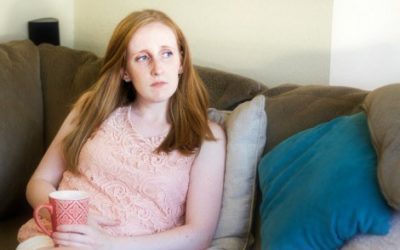
If you find it difficult to talk about the child you placed for adoption with people they don’t know, you’re not alone. Many birth mothers have shared that they feel this way too. The question can be a trigger and sting like lemon juice in a fresh wound.
Choosing adoption for your child was a very personal and emotional experience. No one but you can decide who will be a part of that!
How to Answer
Do you feel that the person asking if you have kids is someone you’d like to share your feelings with? If you are OK with going into detail about your adoption plan, that’s great.
If not, and you find it easier just to say “No,” it doesn’t mean you deny you have a child. Try not to feel guilty about answering “no.”
If you have yet to find a response you’re comfortable with, here are a few suggestions. One of these might work for you when you’re asked: “Do you have any children?”
- “Yes, I have a daughter/son I placed for adoption.” If you answer this way, just be prepared for more questions.
- “Yes, but he/she doesn’t live with me.”
- “Yes.” A simple yes will do if you don’t feel like explaining. This simple answer is perfect if the person asking is random, such as the woman behind you in line at the grocery store.
- “No.” There may be times when you just want to say no. You might not feel like dealing with further questions. Or, you might not want to feel judged. If you choose to say “no,” please don’t feel like you’re rejecting your child. Your heart knows the true answer, and that’s what matters.
What Other Birth Mothers Have Said
Destiny shares, “Most people are asked at one point or another, ‘So, do you have any kids?’ My first reaction to this question is thinking to myself, ‘do I say no? Should I say yes, and if I do, do I want to deal with all the questions and judgment after I tell them?’ Why is it that I feel unsure, almost ashamed?
I’m proud of my son and the life he now has. It’s my decision who is worthy of being a part of that, but in general, I will answer, ‘Yes, I have a son.’
If they ask further, I’ll be honest. If they don’t ask for more details, then no big deal. More often than not, you won’t even get another question asking details. It’s the same as someone passing by asking, ‘How are you doing?’ and you respond, ‘I’m fine, how are you?’ Let’s be honest, they don’t really want to hear the details about how you’re doing, they’re just being polite and making conversation. The same goes for the question: ‘So, do you have kids?’
If you’re comfortable with being completely open with people about your adoption experience, then why not? If you’re not, then that is no one’s decision other than yours.”
And as Raquel shares in her Love What Matters article, her hesitation in answering the question, ‘How many kids do you have?’
“…doesn’t lie in what I feel, but rather in what I am willing to feel. Let me explain. I know how I feel. Deep in my soul, I know my body counts every child. But when I answer honestly and include my birth daughter in my headcount, it’s not uncommon for there to be more questions that require more explanations.
‘Well, where’s your other one?’
For years, this question was a trigger…Thus, in meeting new people and engaging in small talk, I’ve always had to assess whether or not I could handle the emotional toll of the conversation and then plan accordingly…I decided to lean into the pain, own my journey, and stop worrying that my truth might make someone else uncomfortable. I decided silence perpetuates ignorance. I decided it will always hurt. I’ve decided I don’t owe anyone a simple answer.”
Adoption Grief
The grief of loss in adoption makes the question, “Do you have kids?” one that a birth mother may agonize over. After all, your adoption story doesn’t just end after you leave the hospital or when the adoption becomes final. Adoption is a lifelong journey.
It’s totally normal to feel sad after the adoption placement happens and your child is with their adoptive family. Even if it’s been years since you placed your child, you might still feel sadness, regret, and anger at a level you didn’t anticipate. Being asked if you have children may trigger you to remember all you’ve been through.
Your child is alive and well, which seems to deny that you’ve lost anything. However, that knowledge may make it all the more confusing for you to process. Many birth moms have found that it helped them to get updates, emails, and photos from the adoptive couple. With open adoption, you get updates on your child as they grow up. You might even choose to visit in person with them. We recommend that you exchange photos and emails with the adoptive couple if you feel comfortable with it and it’s something you need.
Lifetime Adoption has helped many birth mothers walk through post-adoption grief. We understand the complex emotions that occur after placing your child for adoption. Even if you know you made the right decision about adoption for your child, you may still feel some sadness.
Lifetime Adoption offers counseling from an independent counselor, no matter where you’re at in your child’s adoption. You might face a bunch of emotions you weren’t expecting, and it can really help to speak with somebody. Learn more by texting or calling Lifetime Adoption at 1-800-923-6784.
Editor’s Note: This article was originally published on July 6, 2018, and has since been updated.
As Vice President of Lifetime Adoption, Heather Featherston holds an MBA and is passionate about working with those facing adoption, pregnancy, and parenting issues. Heather has conducted training for birth parent advocates, spoken to professional groups, and has appeared on television and radio to discuss the multiple aspects of adoption. She has provided one-on-one support to women and hopeful adoptive parents working through adoption decisions.
Since 2002, she has been helping pregnant women and others in crisis to learn more about adoption. Heather also trains and speaks nationwide to pregnancy clinics to effectively meet the needs of women who want to explore adoption for their child. Today, she continues to address the concerns women have about adoption and supports the needs of women who choose adoption for their child.
As a published author of the book Called to Adoption, Featherston loves to see God’s hand at work every day as she helps children and families come together through adoption.


![How to Use a Pregnancy Wheel Calculator [Video]](https://lifetimeadoption.com/wp-content/uploads/2020/04/pregnancy-wheel2-1-400x250.jpg)

0 Comments